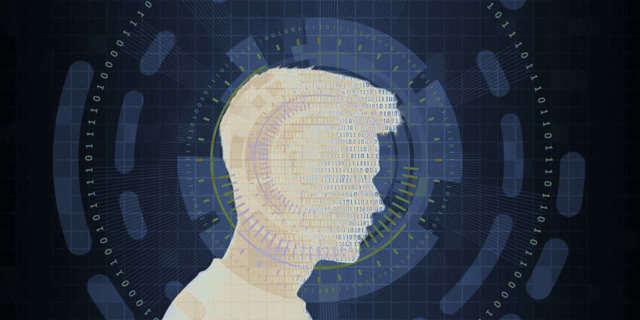Understanding Digital Identity
In a modern country, identity verification is crucial for accessing numerous government services. In many modern countries, essential public services such as banking, healthcare and transportation are slowly being digitized. Perhaps our access to social media will also soon require a digital ID in the near future.
As more countries become increasingly more digitized, thus governments around the world are rapidly adopting digital identity systems to streamline citizen identification. Governments purport to their citizens that digital systems will help to reduce fraud and improve service delivery. However, what does all the technological advancements mean for the average citizen?
Let's begin by gaining a broad understanding of what is digital identity. Digital identity is basically the electronic representation of individuals, which enables them to prove who they are in the digital world. Identification can take many forms e.g. biometric data (fingerprints, facial recognition or iris scanning), cryptographic keys or digital ID cards. Unlike traditional paper-based IDs, digital identity systems are designed for seamless integration with government and private services, making verification faster and more efficient.
Key Technologies Powering Digital Identity Systems
Governments may use a range of technologies to build secure digital identity systems. Here are the most common ones that you may have already utilized or heard about:
- Biometric Identification:
You are very likely to have already come across systems that identify you via your fingerprints, facial features or iris scans. These systems are commonly found in banks and government department such as transportation and immigration. - Smart ID Cards:
You might be surprised to know that even a lesser known country like Malaysia are using digital cards with embedded chips to identify their citizens, permanent residents and temporary foreign workers. These smart cards can store encrypted personal data such as name, nationality, age, race, religion, employment status, etc. - Blockchain Based Digital Identity:
Although not widely used yet, you can quite safely bet that governments are exploring the potentials of utilizing a decentralized and tamper-proof blockchain network to better serve and monitor citizens. Some known examples are Sovrin Network and World Economic Forum’s digital ID initiative. - Mobile Based Digital Identity:
Some countries have even take it one step further in making digital public services more accessible to their citizens via mobile devices. For example, Sweden's BankID is a widely used electronic identification and signing service which millions of Swedes mobile users rely on for various services. Singapore is also another developed nation that is rapidly undergoing digital transformation. In the last few years since 2018, Singapore's Singpass app has enabled their citizens to conveniently access government services secured with biometric and passcode security systems. - Centralized Digital Identity System:
Cloud based system like United Kingdom's One Login is hoped to be a more straightforward and secure way for the people to prove their identity and access government services without the need to present physical documents. So far, the rollout of the project is limited to only a handful of government departments, thus only a very small fraction of the population has accessed the system.

Will Citizens Adopt Digital Identity?
Despite the resistance of technophobes in embracing new technologies, it is foreseen that a majority of citizens are likely to adopt the use of digital identity systems if it prove to be highly user-friendly and convenient.
We are already witnessing how even less tech savvy people love to use digital money because technologies such as NFC and PIN codes have made it so convenient to make payments.
Therefore, a highly integrated and accessible digital identity system could prove to be very enticing to citizens, especially if it eliminates the need to remember and enter passwords which pretty much every Internet user hates.
Impact of Digital Identity Systems on Citizens
Going digital certainly presents a host of benefits but it is also wise for citizens to consider the risks and pitfalls of embracing a more digitized life.
Let's first talk about the benefits that citizens can enjoy if their government digitize public services:
- Convenience and Accessibility:
Digitization usually means less physical paperwork. Hence, the people would welcome digital transformation if they are allowed to speedily and conveniently access essential services without needing to show their IDs, licenses or other cards. - Improved Security:
Biometric authentication and cryptographic encryption have also proven to be highly effective against combating fraud and forgery. These technologies can also serve the citizens very well in preventing identity theft as long as the user also takes some responsibility in practicing essential cybersecurity skills. - Faster Government Services:
People in modern society do not enjoy waiting in line, especially if they are in a busy government department. For instance, speedy processing is particularly crucial on routes where high volume of workers cross the border daily to enter into a neighboring country to go to work. The Malaysia-Singapore border and some parts of European Union are some examples where a speedy digital identification system will be beneficial. - Financial Inclusion:
There is still a significant population of people around the world who are unbanked, which leaves them out of benefiting from financial assistances provided by governments. These groups of people most likely live in rural areas where access to the Internet is limited. Thus, a simple but efficient digital identity system would allow the unbanked citizens to access public services that can help them improve their standard of living. Even Bitcoin is hailed to be a promising solution that will greatly help the unbanked people to participate in the global economy.
On the other hand, going digital comes with its own set of risks and pitfalls. We have only been using the Internet for about three decades and numerous problems have already arisen from it.
- Privacy Issues:
Data security issues are one of the top concerns from going digital. Governments and companies have been monetizing the data harvested off people but only a trickle of the monetization returns to the people. Our personal data are being misused because many countries enforce weak data privacy laws. - Cybersecurity Issues:
As we have mentioned before in our digital money post, no digital system can be totally secure from hackers, phishing or malware. If you hold a digital identity that seamlessly connect to numerous online services, it also inadvertently means a security breach would allow the hackers to steal your identity and execute malicious acts using your name across those services. We are talking about millions of citizens' identities at risk here and a misstep could potentially cause catastrophic effects. - Exclusion of the Unconnected:
Governments are suppose to serve all their people, so going digital extensively risk locking out people who do not have access to the Internet. The elderly citizens are particularly vulnerable of being left out of essential public services due to their inept to adapt to technological changes. - Government Overreach and Control:
Most countries around the world now are governed by democratic systems that grant much freedom to the people. Therefore, a fully integrated digital ID system can restrict freedom and may cause significant social unrest. Social scoring system like the one enforced by Chinese communist government is not likely going to be favorable with the democratic people who are used to enjoying much personal freedom.
The Future of Digital Identity
It does seems to look like we are heading into a future where user-controlled digital identities become the norm.
However, before we can enjoy living in a digitized world where digital identity systems can truly be efficient and secure, governments must strictly enforce data privacy laws. Issues pertaining to cybersecurity and ensuring inclusivity for all people must also be thoroughly taken into account.
To give citizens control over their own data would mean that the citizens must be educated on how they can protect their data. This means the citizens must also be willing to learn, just like how anyone must take the initiative to learn how to protect their digital assets if they want to benefit from investing in cryptocurrencies or any decentralized finance (DeFi) tools that is not controlled or highly regulated by governments.
To conclude: Would you feel comfortable with a fully digital identity?

Study Free Online With Alison Education
With Alison, you can study a wide range of computing and cybersecurity courses without paying any tuition fees. You only need to pay if you need the certificate and I may get a commission as an affiliate.
GO TO ALISON WEBSITE

